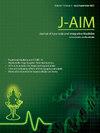追求证据:需要改变阿育吠陀教育
IF 1.9
Q3 INTEGRATIVE & COMPLEMENTARY MEDICINE
引用次数: 0
摘要
国内外都在强烈呼吁加强传统医学的证据基础。阿育吠陀,像其他传统系统一样,经常被批评缺乏证据达到现代医疗保健药物和实践的标准。这种证据上的差距导致阿育吠陀被视为不如生物医学。因此,提供高质量的证据不仅对阿育吠陀的可信度至关重要,而且对提高其在全球标准护理实践中的纳入也至关重要。然而,如果阿育吠陀的研究人员和从业者没有被正式地教导证据合成的优势和方法,这些证据怎么能产生呢?阿育吠陀的主流研究文化很大程度上强调通过将其替换为现代疾病描述符的成熟临床协议来验证阿育吠陀配方,而不是关注使用阿育吠陀词汇的假设驱动研究。我们认为,这在一定程度上是由过时的课程、训练有素的教师、教学学院对研究基础设施的投资不足以及缺乏鼓励跨学科学习的政策造成的。为了解决这些差距,我们建议对阿育吠陀教育进行全面转型,包括将生物医学学分课程纳入课程,实践实习提供实践经验,招聘具有生物医学专业知识的教师,并提供资金升级阿育吠陀学院。这些想法将有助于培养一批阿育吠陀毕业生,他们不仅熟悉现代生物医学,而且具有开发和测试新想法的基础知识。印度可以成为综合医学领域的全球领导者,拥有几个本土医疗系统,以及生物医学科学方面有才能的人力资本。是我们冒险的时候了。本文章由计算机程序翻译,如有差异,请以英文原文为准。
In pursuit of evidence: A need to transform Ayurvedic education
There is a loud call nationally and internationally to strengthen the evidence base for traditional medicine. Ayurveda, like other traditional systems, is often criticized for its lack of evidence upto the standard expected for modern day healthcare drugs and practices. This gap in evidence has led to Ayurveda being viewed as inferior to biomedicine. Therefore, producing high-quality evidence is essential not only for the credibility of Ayurveda but also to elevate its inclusion in standard of care practices globally. Yet, how can this evidence be generated if Ayurvedic researchers and practitioners are not formally taught about the advantages and means of evidence synthesis? The prevailing research culture in Ayurveda largely emphasizes validating ayurvedic formulations by substituting them into well-established clinical protocols for modern disease descriptors, rather than focusing on hypothesis-driven research using ayurvedic vocabulary. We argue that this arises in part from an outdated curriculum, poorly trained teachers, insufficient investment in research infrastructure at teaching colleges, and a paucity of policies to encourage cross-disciplinary learning. To address these gaps, we propose a comprehensive transformation of Ayurvedic education by including biomedical credit courses into the curriculum, practical internships to provide hands-on-experience, recruitment of teachers with biomedical expertise and funds to upgrade Ayurveda colleges. These ideas will help develop a cohort of Ayurveda graduates who are not only familiar with modern biomedicine, but also have the fundamental knowledge to develop, and test new ideas. India can emerge as a global leader in the area of integrative medicine, with its repository of several indigenous medical systems, and talented human capital in biomedical sciences. It is time we take the plunge.
求助全文
通过发布文献求助,成功后即可免费获取论文全文。
去求助
来源期刊

Journal of Ayurveda and Integrative Medicine
INTEGRATIVE & COMPLEMENTARY MEDICINE-
CiteScore
4.70
自引率
12.50%
发文量
136
审稿时长
30 weeks
 求助内容:
求助内容: 应助结果提醒方式:
应助结果提醒方式:


